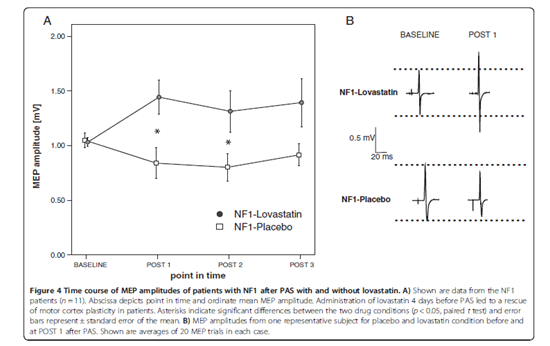TP3 - FP1
Synaptic plasticity and cognitive function in patients with RASopathies
Cognitive impairment is a common medical issue in RAS pathway disorders and variable in its expression. It is presumed to be caused – at least in part - by impaired synaptic plasticity due to dysregulated RAS signaling in neurons. In animal studies, pathway specific pharmacological interventions with Lovastatin have shown to improve synaptic plasticity as well as cognitive function. The focus of this project is to translate these findings to humans. In patients with neurofibromatosis, the applicants have already demonstrated in a placebo-controlled short term intervention, that RAS pathway modulation by Lovastatin reduces GABAergic inhibition and improves synaptic plasticity as well as attention. In this study, effects will be studied in Noonan syndrome. Lamotrigin is a further promising substance modulating RAS pathway with potential influence on synaptic plasticity. This substance will be studied in Noonan Syndrome as well as in Neurofibromatosis Type 1. Results will provide significant information about effectiveness and the mode of action of these interventions in humans and may help to design clinical trials.

Figure taken from: Mainberger et al. BMC Neurology 2013
Major goals:
- Evaluation of synaptic plasticity in patients with RAS pathway disorders
The project is targeting cognitive impairment, one of the main health problems of patients with RAS pathway disorders. Synaptic plasticity is considered to play a central role in cognitive function. Improved understanding of impaired synaptic plasticity in patients with RAS pathway disorders will help to develop therapies to improve cognitive function. - Pathway specific pharmacological intervention to improve cognitive function
Lovastatin and Lamotrigin are promising substances to improve synaptic plasticity and consecutively cognitive function. Especially alertness and attention are functions which are expected to improve and which may have high relevance for daily live living and quality of life.







